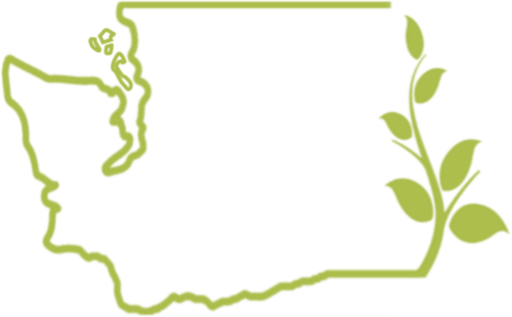
Seeds For Thought
A newsletter of the Master Gardener Foundation of Washington State
May 2024 – Volume 24, Issue 2
From the President
~~ Tana Hasart, MGFWS President
Next >>>
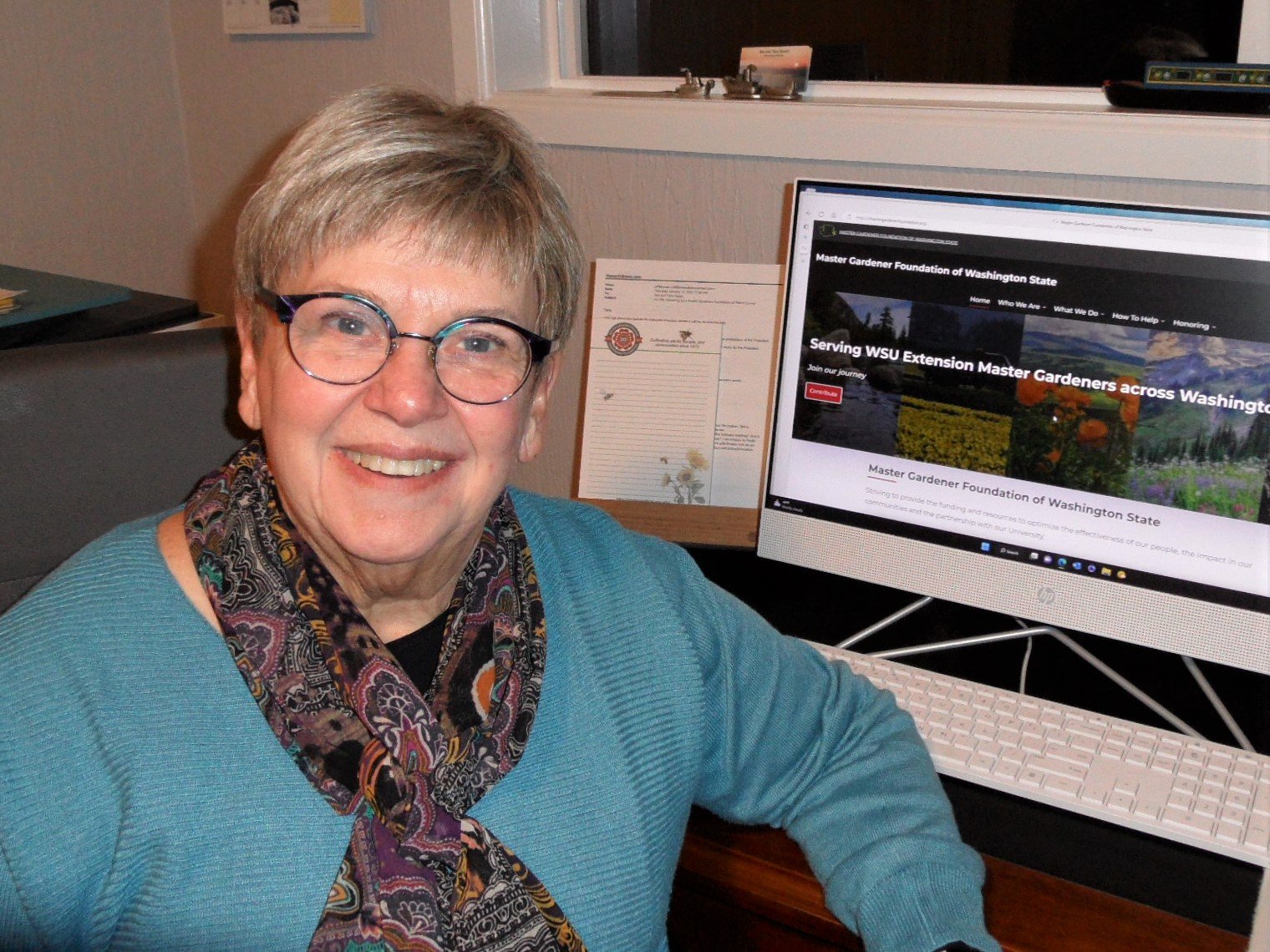
A TIME FOR ALL SEASONS
Just as our gardens have various seasons of growth, each year our MGs encounter season-specific work. After sitting in four different meetings last week where it was noted that those attending were really tired, I couldn’t help but reflect on the impact of our MG volunteer workload encountered each year between March and June.
New leaders are in place for many programs, budgets are established and working, and projects that require spring and summer weather are beginning in earnest. Trainees are ready and eager to move from their formal book learning to the skills application phase.
And, of course, plant sales and other fundraising opportunities are in full swing, along with the opening of on-site plant clinics and coverage at many community events. No wonder folks are tired.
So, what are the solutions to consider if weariness strikes? Here are some ideas:
- Breathe! Remember the old adage, “The hurrier I go, the behinder I get!”? Take a minute to slow down, align priorities, and establish balance amidst all the demands.
- Spread the wealth. Sometimes, we get caught in a trap, thinking that we, as individuals, can do things quicker, better, and faster. As WSU-trained educators, we can teach by setting an example when tasks are shared with others and skills are built for newer MGs.
- Reconsider priorities. The MGFWS is engaged in producing a handbook and accompanying orientation for new board members. Taking a pause in producing these two products to make sure our current structure, bylaws, position descriptions, and other necessary documents are in order will make the handbook and orientation even stronger and more effective. That meant putting some work on hold while the critical support pieces were reviewed and revised. Our project will take longer to accomplish but will be more solid when completed.
- Be kind to yourself and others. Take time to reflect on personal accomplishments. Thank others for completing good work. And realize that when people are tired and stretched, giving them a bit of grace may be essential.
- Plan a treat. Whether it’s a cup of tea, a cookie, or time to read this great issue of Seeds for Thought, build rewards into your life. Remember, a reward is something given in recognition of service or achievement. We accomplish such incredible work for the WSU Extension Master Gardener Program, so acknowledge your contribution meaningfully.
Thank you so much for all you do!
Tana
From the Statewide Program Leader
~~ Jennifer Marquis, WSU Extension Master Gardner Program Statewide Leader
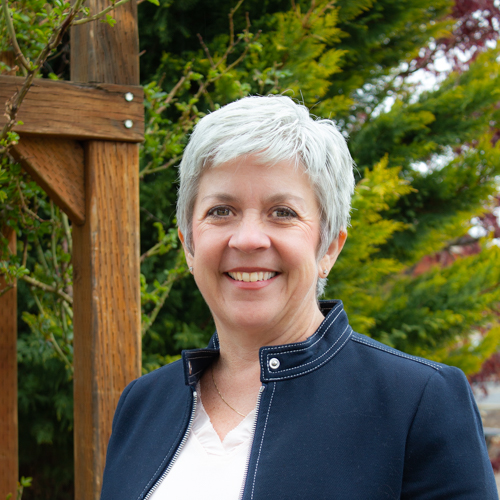
Program Evaluation: Coming to a County Near You!
Who are we, what do we do, and why do we do it? We are WSU Extension Master Gardener volunteers who empower and sustain diverse communities with relevant, research-based horticulture and environmental stewardship education for resilient individuals, families, and communities across Washington. Nearly 4000 strong in 2023, volunteers gave more than 300,000 hours valued at $11.3 M to communities across our great state. Volunteers hosted 2323 educational outreach events focused on our 9 program priorities and hosted 5000 plant clinics answering gardeners’ questions.
All of these numbers are important to have, but they only tell part of the story. We need to be able to shout from the rooftops about the real differences we make in the lives of people who participate in our educational outreach events and our plant clinics. Furthermore, we need non-gardeners to hear about our Program and think “Wow, extension master gardeners do so much good for my community.” How do we do that? Well, it requires help from coordinators and volunteers alike.
We must do a better job of evaluating our programming. To that end, the Telling Our Story Team is creating some tools and is asking each county to choose at least one local food event and one climate change, water conservation, or plant biodiversity, event to evaluate in 2024. The local food tools will be available by the end of April and the tools for the other three will be available by the end of May. Keep an eye on https://mastergardener.wsu.edu.
Program evaluation requires thoughtful program development focused on teaching participants about the specific things we want them to learn and do. Furthermore, we need to ask our participants about what they learned, about what they will do because of what they learned, about what they did because of what they learned, and about how what they did changes the outcome. This is a series of questions that need to be asked over a period of time.
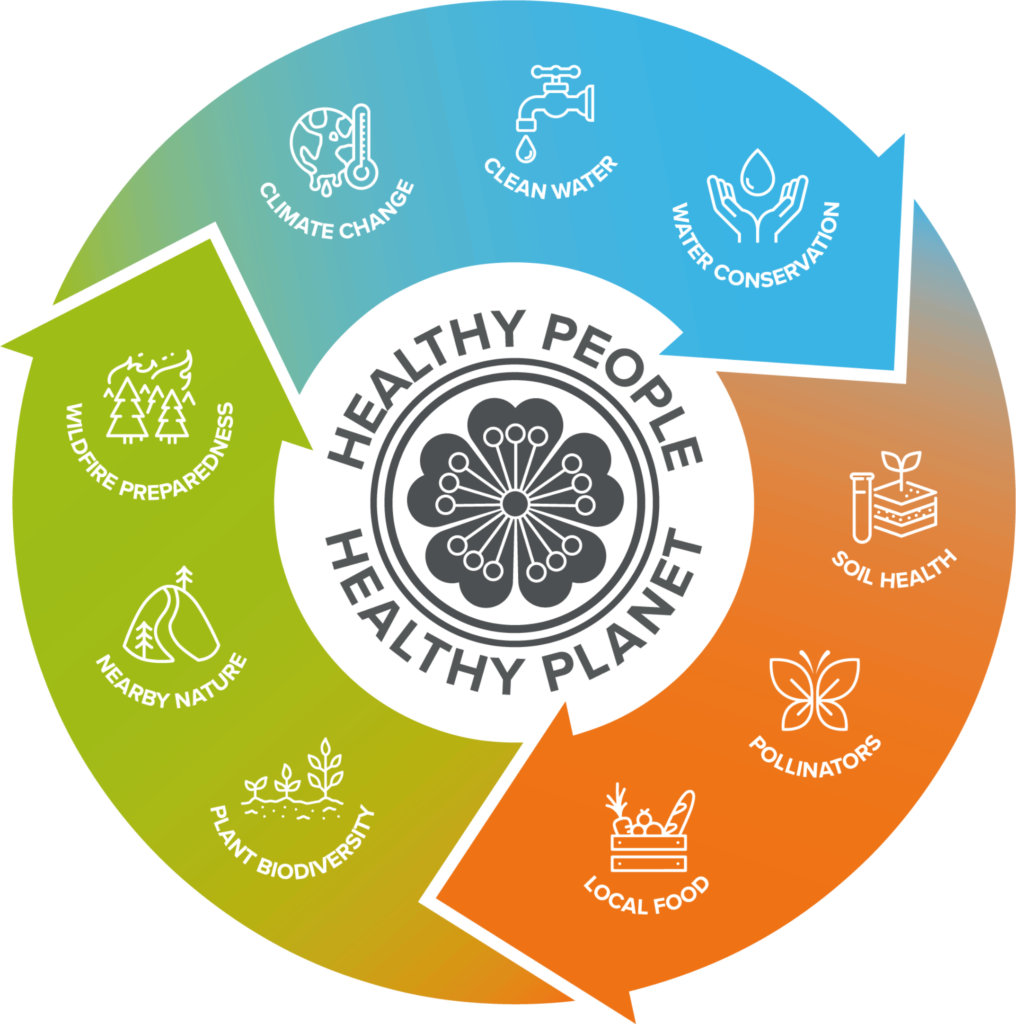
For example, participants in a tomato pruning workshop are taught about local food learning objectives and about specific techniques to increase tomato yield. Immediately following the class those students will be asked to complete a pre-post survey to tell us about what they learned and what they will do because of what they learned. About 6 months later, those same students will receive another survey asking them if they did what they said they were going to do, and in another 6-8 months, they’ll be surveyed again to find out what changed because of what they did. Hopefully, they experienced an increase in tomato yields and had so many tomatoes that they donated many to the local food bank. If we do this evaluation well, then we will be better able to tell a compelling and impactful story that goes something like this:
Issue:
Between 27% and 49% or up to 1.5 M of Washington households experienced food insecurity in 2020-2023. WAFOOD Brief 14. Food insecurity disproportionately impacts traditionally marginalized audiences, households with children, and impoverished households putting them at greater risk for:
- Decreased academic success
- Chronic physical health conditions like diabetes and obesity.
- Mental Health disorders
Consequences:
Food insecurity causes an economic and mental health burden across Washington and the United States costing the US healthcare system nearly $481 billion annually.
- Obesity costs the Washington state healthcare system $2 billion a year. (CDC).
- Diabetes costs the Washington State healthcare system $6.7 billion a year (WA DOH).
- Mental health care costs are estimated to be $708 million annually (JAMA).
- Decreased academic outcomes and ability to attain educational success.
Local Food:
In 2023 Extension Master Gardeners addressed food insecurity by hosting 900 classes, workshops, demonstrations, and field days; answering 10000 questions on growing food in plant clinics; reaching audiences through Podcasts, newsletters, an tip sheets; Food demonstration gardens; Community P-Patch style gardens; Partnerships with SNAP-Ed, 4-H, Veterans Affairs, immigrant and low-income communities, and correctional facilities.
Public Value:
Extension Master Gardener Program directly affected food growing and security practices among 38300 individuals increasing engagement among community members in growing food and donating produce to local food banks and pantries. Extension Master Gardener Program donated 96500 pounds of produce and 5000 vegetable seedlings, valued at $135K, making nutrient-dense foods easily accessible locally feeding 160 households for a year. WSU Extension Master Gardener Program improves food access and individual and community health and wellness for a resilient Washington.
Interested in learning more? Take a look at the March Staying Mission Driven recording. There will be much more on the process for launching our program evaluation tools. Stay tuned.
A Year of Exploration: Clark County MG School Garden Program
~~ Sonya L Sigler, Clark County Master Gardener
The 2022-23 school year was the first full year of the WSU Extension Clark County Master Gardener’s School Garden Program in seven Title I Vancouver Schools. The Program began with a generous $10,000 grant from the MGFCC Foundation which funded School Garden Program Coordinator Bekah Marten for two years.
The first year was one of building relationships, leading staff trainings, making numerous classroom visits, and creating garden enrichment programs with garden access for all students.
The School Garden Program is premised on outdoor learning which gives children the chance to observe the natural world and the ability to apply classroom concepts to the real world. Students explore nature while expanding their practical knowledge. When students engage with the school garden, they develop a respect for their surroundings, nurture a passion for the land, water, animals, and plants, and increase their understanding of their place in the world. These formative practical experiences complement what student learn in the classroom and foster their enthusiasm for learning.
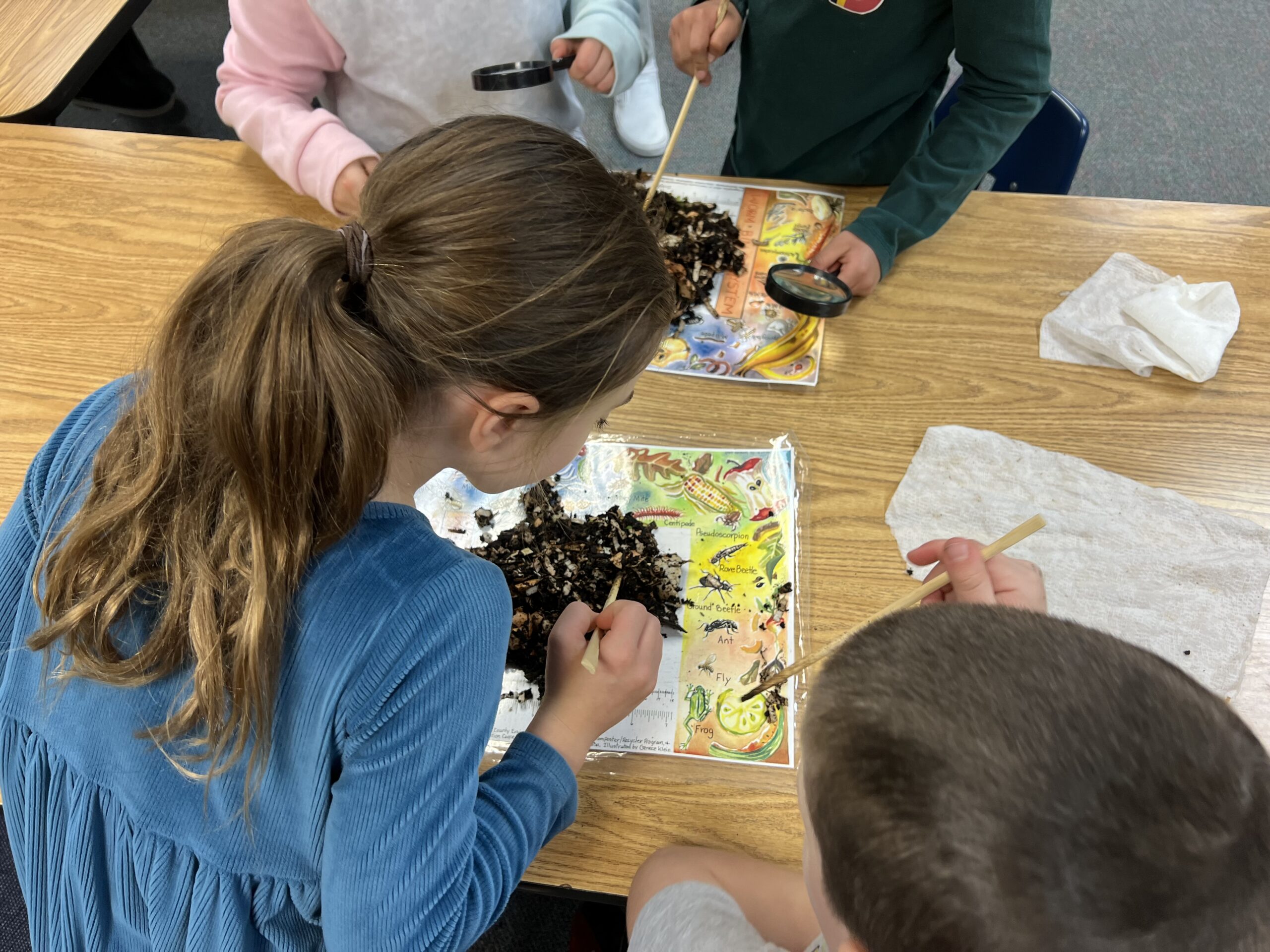
Teachers observe that school gardens stimulate student interest, promote teamwork, and support STEM education. Truman Elementary Resource Coordinator Michelle Ames said, “Recess in the Garden has provided three major benefits for our school: children have garden time, a therapeutic element has been added to recess, and it has increased parent and community volunteering.”
Other School Garden benefits are increased student awareness of where their food comes from and a decrease in student behavior issues, which is a boon to teachers everywhere!
Students reluctant to speak in the classroom have been active and intrigued by the garden. School Garden Coordinator, Bekah Marten observed, “Kids begin thinking and start asking great questions. They go from ‘ewww, I don’t want to touch that,’ to putting that soil or insect in their hands.”
In its second year, the School Garden Program now continues to expand with more Master Gardener volunteers and broader interest from more Clark County schools, staff, and parents. As we increase funding beyond our initial $10,000 we will be able to stabilize existing school programs, implement the program in other Vancouver Schools, and expand it throughout Clark County.
Impact Snapshot:
- $10,000 of initial funding
- 4225 garden visits
- 1400 seeds planted
- 1200 students served
- 145 staff trained
- 123 classroom visits
- 17 Master Gardener Volunteers
- 7 Vancouver-area elementary schools
- 1 School Garden Coordinator
2024 WSU Master Gardener Advanced Education Conference
~~ Joyce Frazier, 2024 AEC Marketing
Master Gardener Foundation of Washington State in partnership with the WSU Master Gardener State Program presents the Virtual 2024 WSU Master Gardener Advanced Education Conference, September 27-28, 2024.
The virtual 2024 Advanced Education Conference, Gardening in a Changing Climate, provides exceptional opportunities with high-quality classes and instructors. WSU Extension Master Gardeners earn continuing education hours improving their ability to teach sustainable horticulture skills across Washington.
The conference features 35 live and recorded classes, focusing on research-based gardening and environmental stewardship practices, that address nine program priorities and support extension master gardener leadership skills.
The WSU Master Gardener Advanced Education Conference is open to the public.
Early registration opens on June 1, 2024.
Early bird registration: $109 (June 1-30, 2024)
Regular registration: $139 (July 1-September 20, 2024)
Last day to register is September 20, 2024
Program information and ticket information can be found at https://mglearns.mastergardenerfoundation.org
We are pleased to announce our 2024 Keynote Speaker, Rebecca McMackin!
Who doesn’t love butterflies? Our gardens can be stunningly beautiful while also providing habitat for the wildlife that enriches our lives. Indeed, in these dire times, garden design and management must consider the many other organisms that use our land. However, traditional landscaping practices rarely take biodiversity into consideration, and there is a dearth of effective guidelines to follow.
For ecological horticulturist Rebecca McMackin cultivating habitat is central to landscape management.
In her 11 years as Director of Horticulture at Brooklyn Bridge Park, Rebecca oversaw 85 acres of diverse, organic landscapes, all managed to support birds, butterflies, and soil microorganisms. If she can do it in the middle of New York City, you can do it in your garden.
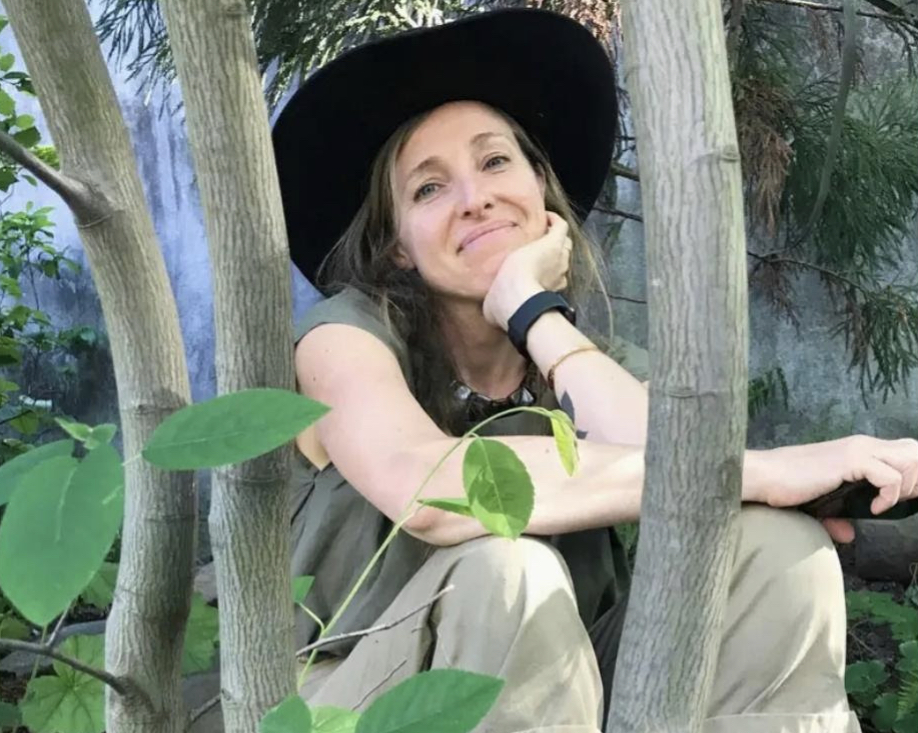
Join us to learn how to use ecological insight and experimentation to develop new management strategies – and why careful observation and documentation of the insects, birds, and other wildlife in your gardens is crucial to their success.
A few of our other featured speakers include:

Nick Bond will review how the climate in Washington State has varied over the historical record, and projections of our future climate, from a gardening perspective, in his presentation, “Climate Change in Washington State.”
Nick is a principal research scientist with the Climate Impacts Group (CIG) of the University of Washington. He has been the climatologist for the State of Washington from 2010-2024.
Thyra McKelvie will present, “Learn About Mason and LeafCutter Bees: How to Properly Care for Them in Your Garden.” Millions of bee hotels are purchased every year, but not many people realize they require annual maintenance. The lack of proper care can unintentionally harm bee health. Discover the methods and the profound importance of their contribution to sustaining our delicate ecosystem.
Thyra runs the pollination program at Rent Mason Bees to help gardeners host solitary bees. Her passion is to educate and teach more people about solitary bees and the importance of taking care of all our pollinators.
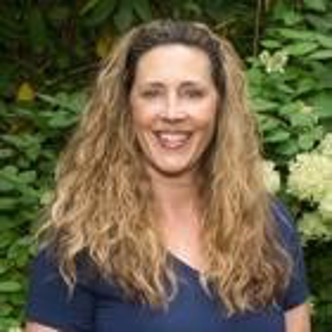
Mel Asher, “The Challenges of Native Plant Gardening in the Inland NW.”

Summer high temperatures routinely range from 80-95F, and rainfall is scant and unpredictable…Welcome to gardening in the Inland Northwest!
Historically, less than 10% of the population of the US lived in the vast area between the Cascade/Sierra Nevada Mountains and the Rocky Mountains. Retirees from western WA are driving population growth in eastern WA. Learn the challenges when introducing native plants into the home landscape.
Mel will share her personal experiences gardening in eastern WA from 2004 to the present, as well as her experiences as a native plant nursery owner.
Mel was born and raised in Michigan and obtained a BS in Environmental Biology from Michigan State University and an MS in Wildlife Habitat management from Texas A&M. She moved to Washington State in 2004 and started her career with WDFW as a rangeland ecologist. She has worked at BFI Native Seeds as a Restoration Ecologist for 11 years and is the current owner of Derby Canyon Natives.
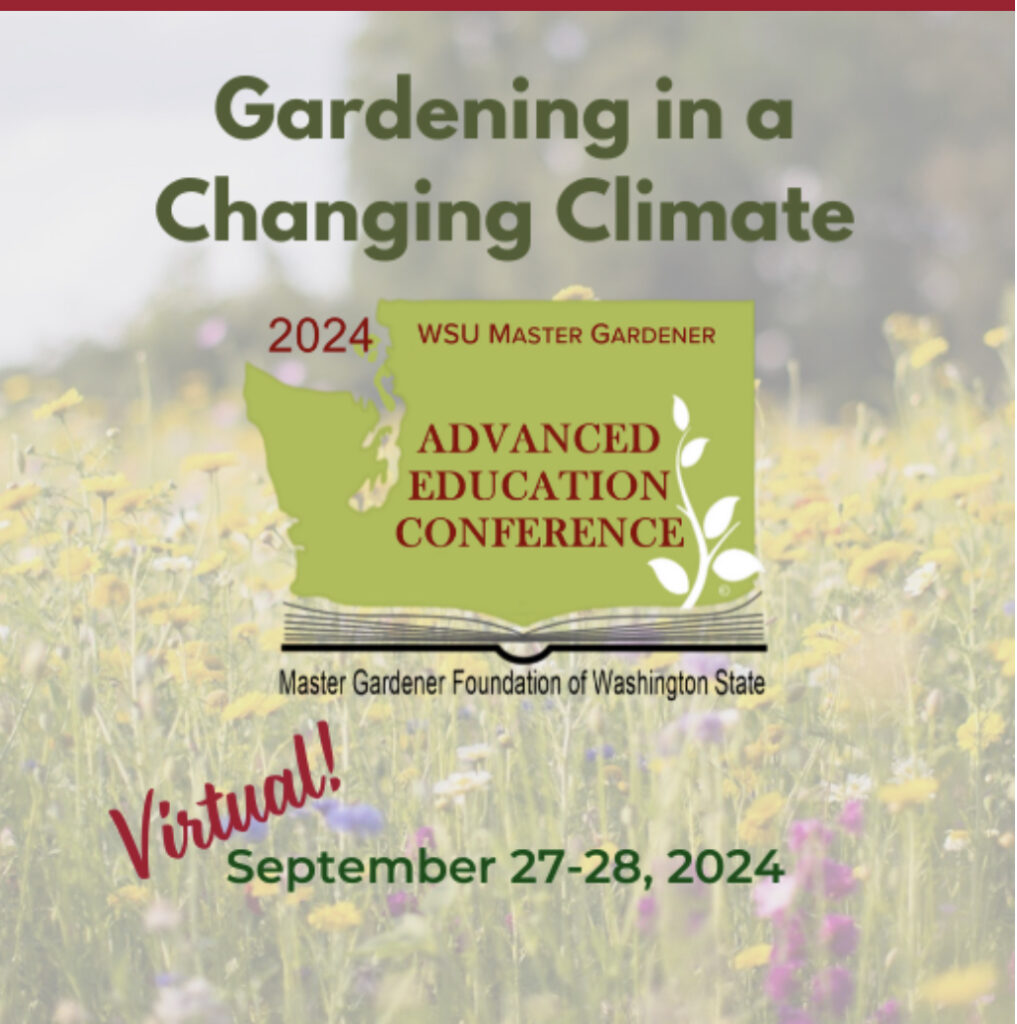
The Master Gardener Foundation of Washington State is instrumental in providing funding to advance the Master Gardener Program and education through horticultural-based research generated through Washington State University and affiliated university systems. WSU Extension Master Gardeners empower and sustain diverse communities with relevant and unbiased, research-based horticulture and environmental stewardship education.
2024 Master Gardener Awards
Awards for your Master Gardener colleagues:
Master Gardener of the Year
Media Award Ed LaCrosse Service Award
Nomination forms will be posted soon at mastergardenerfoundation.org

Free Summer Gardening Classes
~~ Island County Master Gardener Program
This summer, gardeners from beginner to advanced from across Whidbey Island and beyond will be able to attend a series of six free classes designed to help implement best practices in the garden. The Island County WSU Master Gardener Education Series classes are open to the public and cover everything from dealing with pests to growing great vegetables. The series is presented by the Island County WSU Master Gardeners.
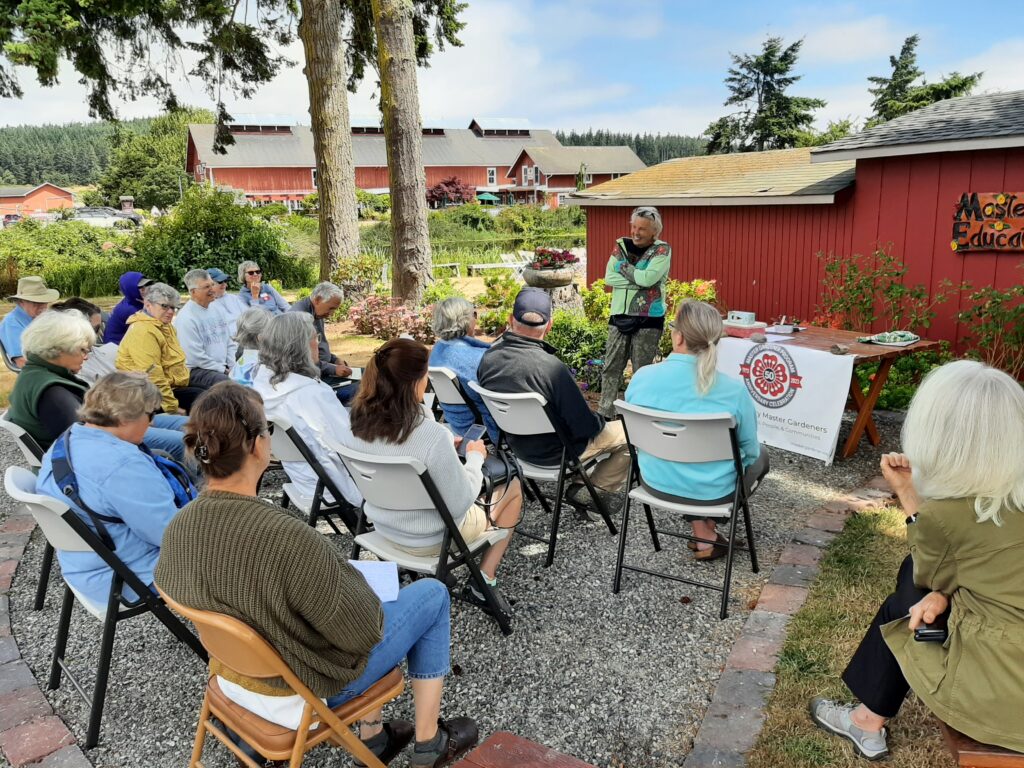
The series highlights how climate change and new knowledge about the impact of human behavior on nature inform and influence best garden practices. The way we garden has a big impact on our Island ecosystems. Gardeners can make a direct difference in caring for the environment in their own backyards because what is done there can affect wildlife, biodiversity, water use, and human health.
Classes will be offered on the third Sunday of the month from 1 pm to 2 pm starting May through September and will take place at the Greenbank Education Garden, located at Greenbank Farm on Whidbey Island.
The schedule includes: May 19: Good Bug/Bad Bug, June 16: Firewise Gardening – Landscaping for Fire Resistance, July 21: Good Lawn/Bad Lawn, August 18: Winter Veggies Growing Guide/Island Stalwarts, and September 15: Go Green in the Garden: Using Nature’s Own Plant Food.
All classes are free and open to the public and also quality for continuing education for Master Gardeners.
2024 Home & Garden Show
~~ Grays Harbor & Pacific Counties Master Gardener Program
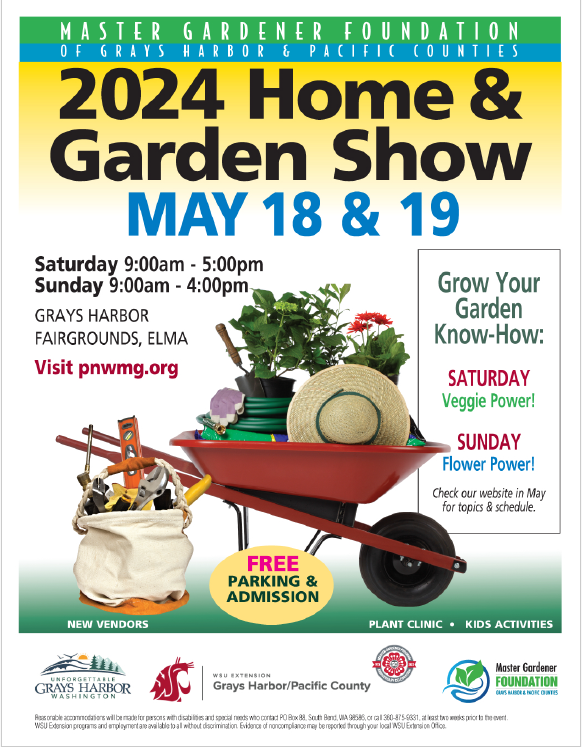
Seeds for Thought is a quarterly publication of the Master Gardener Foundation of Washington State. Submissions, corrections, and comments can be emailed to the Editor, Erin Hoover
Seeds for Thought Copyright 2016-2024 Master Gardener Foundation of Washington State